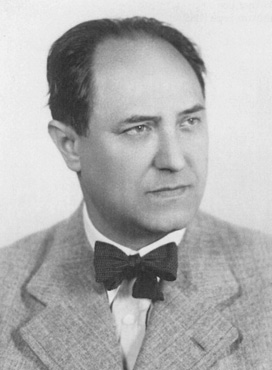The journey of musical works from author to performer
The task of the music publisher is to put manuscripts (be they paper or computerised) into a form that is legible, inspiring, and easy to use for performers; and to ensure the promotion, distribution, and legal use of the works.
With 75 years of experience behind us, we do this honourable work with consideration, commitment, and enthusiasm.
We thank the composers and music teachers who entrust their works to us.
Weiner, Leó

Leó Weiner (b Budapest, 16 April 1885; d Budapest, 13 Sept 1960). Hungarian composer and teacher. In 1901 he entered the Budapest Music Academy, where until 1906 he was a pupil of Koessler. He won the Liszt stipend (1906), the Volkmann and Erkel Prizes for the Serenade Op. 3, the Haynald Prize for his chorus Agnus Dei, and the Schunda Prize for the Magyar ábránd (Hungarian Fantasy) for tárogató and cimbalom.
Weiner worked as répétiteur at the Pest People’s Theatre (1907–8), and then the Franz Josef Coronation Prize enabled him to visit Vienna, Leipzig, Berlin and Paris. In 1908 he was appointed to teach theory at the Academy, serving as professor of composition (1912–22) and of chamber music (1920–57). His work in the latter faculty attracted international notice and helped to establish high standards in Hungarian ensemble playing; his legacy as a teacher left its mark on a generation of musicians that included A. Dorati, Gy. Solti, J. Ormándy, L. Kentner, A. Földes, E. Zathureczky, S. Végh, J. Starker, the Lehner, Magyar and Bartók Quartets etc. At the Academy he established a conductorless orchestra of advanced students (1928). Among awards made to Weiner later in his career were the Coolidge Prize for the Second Quartet (1922), the State Prize for the Suite Op. 18 (1933), and two Kossuth Prizes (1950, 1960).
A composer of highly accomplished technique, Weiner was essentially a Romantic, and he remained opposed to the innovations of Stravinsky and Bartók, while sharing to some extent the nationalist concerns of Bartók and Kodály. Never a folk music collector himself, he was introduced to folksongs by Lajtha; the first compositional fruit was the Suite Op. 18. But the more fundamental influences on his music were Beethoven, Mendelssohn, Bizet and, occasionally, Brahms; under their influence he developed a style of clarity and balance, with a command of the orchestra that is most evident in the transcriptions.
It is possible to distinguish four periods in his output: a pre-World War I phase (1905–13), then a neo-classical phase (1918–24), a period in which Hungarian folk material becomes the main feature of his style (1931–51), and a final period (1952–60) of which the symphonic poem Toldi Op. 43 is the most characteristic example. Notable also are his orchestral transcriptions of Bach, Liszt and Schubert, and of Bartók’s Two Romanian Dances, many of his transcriptions were made popular internationally by the conductor Fritz Reiner. In the final years of his life Weiner published a complete edition of Beethoven’s piano sonatas.
 Deutsch
Deutsch English
English Español
Español Magyar
Magyar Polski
Polski Română
Română Slovenský
Slovenský Slovenščina
Slovenščina 中文
中文




















































